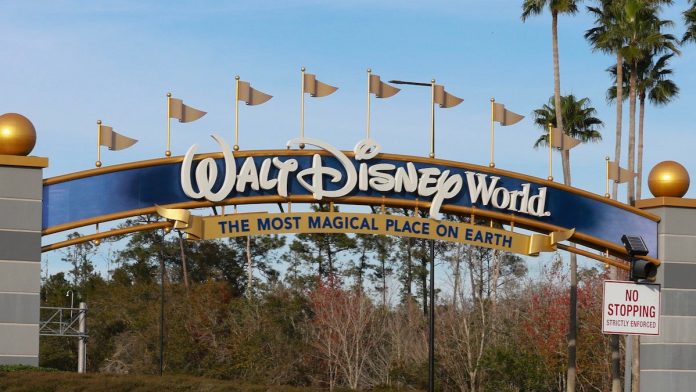Disney’s "Surreal" Defense Sparks Outrage Following Tragic Death at Restaurant
In a shocking twist of events, lawyers are fiercely criticizing The Walt Disney Company’s extraordinary defense regarding the accidental death of a woman who tragically passed away at one of their restaurants. The corporation, often known for its whimsical narratives, is now entangled in a legal battle that presents an unexpected claim: signing up for a Disney+ free trial means you can’t sue them.
Disney’s Mandatory Arbitration Clause Under Fire
Attorneys representing Disney assert that the fine print in their online agreement enforces mandatory, binding arbitration for all disputes, even those unrelated to Disney+. This legal maneuver is causing waves in the courtroom and raising eyebrows across the nation.
Jeffrey Piccolo launched a wrongful death lawsuit in February, holding the Disney Springs resort accountable for the death of his wife, Kanokporn Tangsuan. The incident occurred in October 2023 when Tangsuan accidentally ingested an allergen while dining at the Raglan Road Irish Pub, situated in The Landing near Disney’s Florida theme park.
Wrongful Death Suit Challenges Disney’s Argument
In a recent filing on August 2, Piccolo’s attorney Brian Denney slammed Disney’s argument as “fatally flawed.” He emphasizes that Disney’s claim would essentially mean that anyone who signs up for a Disney+ free trial could permanently waive their right to a jury trial, not just for their own rights but for their future estates as well. Denney boldly asserted, “This argument borders on the surreal,” encapsulating the incredulity many feel towards Disney’s position.
The notion that terms agreed upon when subscribing for a Disney+ free trial could forever deny a consumer access to a jury trial in any future dispute with any Disney affiliate seems excessively disproportionate and unfair. As Piccolo’s legal team pointed out, such an agreement shocks the judicial conscience and should not stand in court.
Disney’s Attempt to Shield Itself from Wrongful Death Claims
The implications of Disney’s argument are staggering. Legal experts suggest that the corporation is actively trying to prevent its 150 million Disney+ subscribers from pursuing wrongful death lawsuits before a jury. The language in their terms and conditions appears to be a strategic effort to insulate themselves from accountability in such tragic circumstances.
In his lawsuit, Piccolo detailed that his wife had communicated her severe nut and dairy allergies multiple times to the restaurant staff, who erroneously assured her that her meal was safe. Tragically, this fatal misunderstanding may have stemmed from a mere oversight, but the consequences were irreversible.
A Pending Court Hearing to Address Disney’s Motion
As the case unfolds, a court hearing addressing Disney’s motion is slated for October 2 in Orange County, Florida. The implications of this case could resonate widely, challenging the legality and fairness of such arbitration clauses in consumer agreements.
Following the lawsuit, it has come to light that staff members at Raglan Road are now making it a priority to inquire about allergies when taking orders, suggesting that the restaurant is reconsidering its protocols post-incident. This change reflects a growing awareness of food allergy severity and consumer safety that may emerge from this tragic event.
Concluding Thoughts on Consumer Rights and Corporate Accountability
This case not only raises critical questions about corporate responsibility but also challenges the robustness of consumer rights, particularly in the wake of unforeseeable tragedies. Disney, a company synonymous with family-friendly experiences, is now facing scrutiny for its handling of liability and consumer agreements.
How far should companies go in shielding themselves from legal repercussions? As we await the court’s decision, one thing is clear—the conversation about consumer rights and corporate accountability is far from over. We can only hope that lessons learned from this incident will help foster a safer environment for all diners and compel companies to treat customer safety and transparency with the utmost regard.

